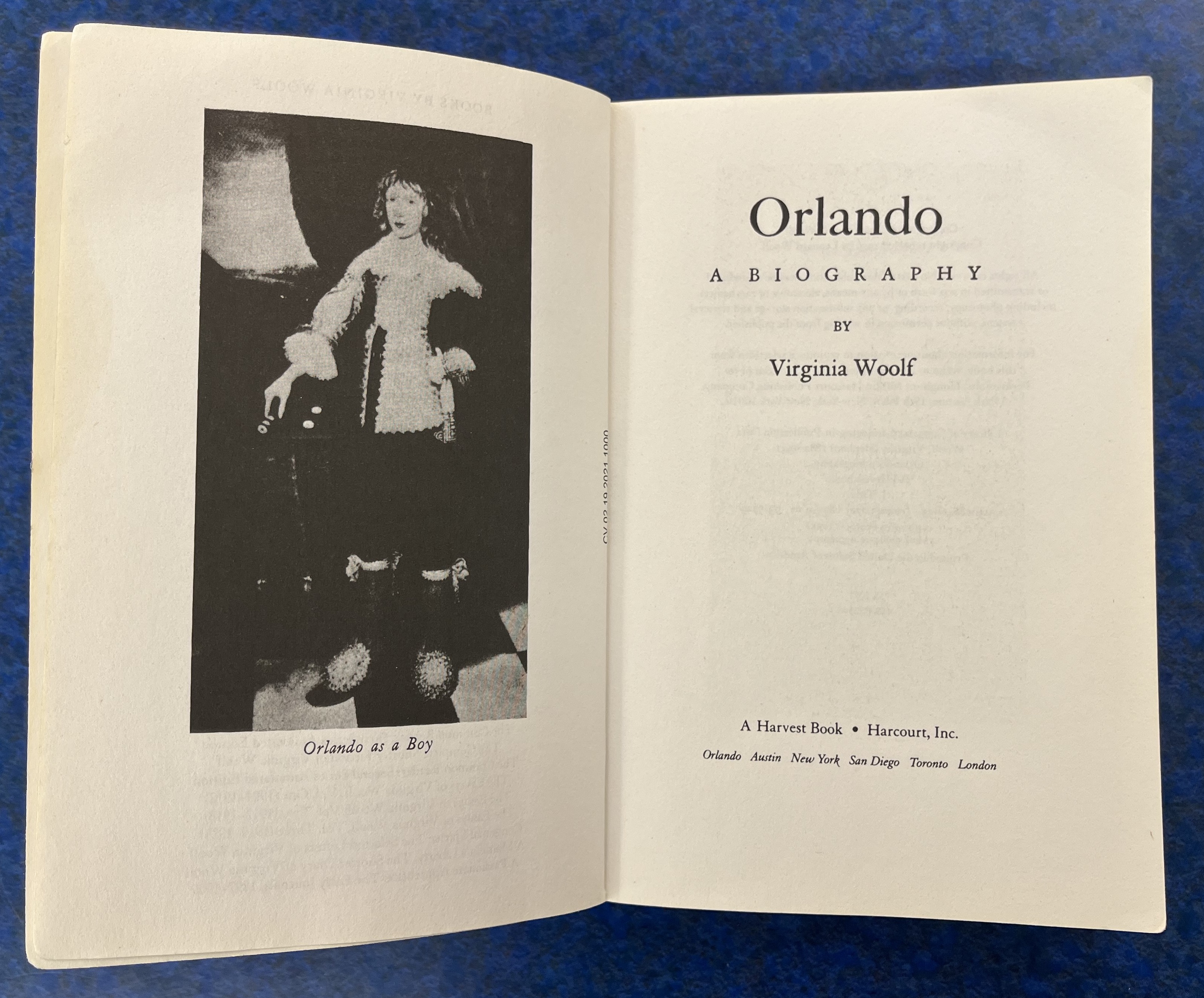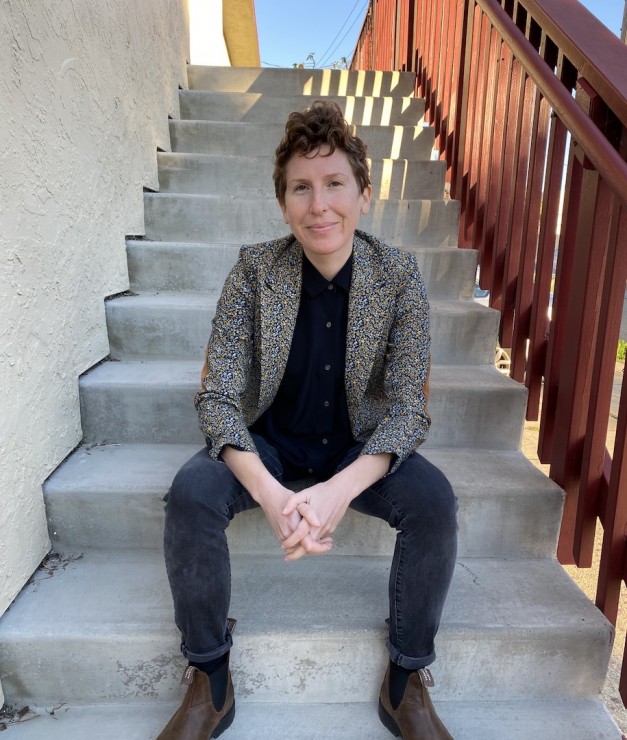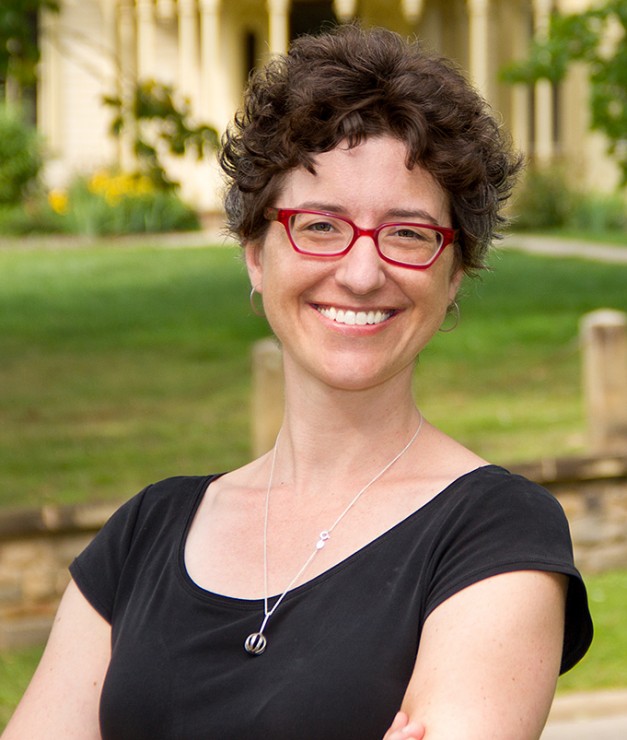For two faculty members, the road to “Orlando” began in New York.
That’s where Assistant Professor of English Alex Brostoff and Associate Professor of English Sarah Heidt ’97 traveled in the fall to watch Paul Preciado’s award-winning, transgender documentary: “Orlando: My Political Biography.”

The film, which premiered last year at the Berlin International Film Festival, tells stories of transition through reenactments and interpretations of Virginia Woolf’s gender-fluid 1928 novel “Orlando: A Biography,” which follows a nobleman who becomes a woman and lives for three centuries. Now Brostoff and Heidt are teaming up to screen the film on campus and lead a reading group dedicated to the literature that inspired it.
The series of four scheduled events called “Orlando on Orlando” — which bookend International Transgender Day of Visibility on March 31 — come at a time when the faculty members say campus interest in transgender cultural accomplishments is at a high point.

“We’ve seen a surge in student interest in trans cultures, literatures and arts.” Brostoff said. “In the past couple of years, when trans writers have given readings on campus, student reception has been especially strong and enthusiastic.”
This includes a visit from nonfiction author Lars Horn last month and writer Alex Marzano-Lesnevich last year. And earlier this semester, Trans Book Club started as an official student organization.
“There’s a real hunger for and excitement about all kinds of trans artmaking and trans artists,” Heidt said.
“Orlando on Orlando” began with discussions of Woolf’s novel on March 19 and will continue March 26, with selections from Preciado’s writings being the topic on April 2. Those gatherings are taking place in Chalmers Library 320 at 4:15 p.m. “Orlando: My Political Biography” — which is showing nationally on a very limited basis — will be screened April 4 at 6 p.m. in Oden Auditorium, a free event that is open to the public.

Any exploration of Woolf’s novel — a satirical take on English literary conventions and a love letter to her longtime lover, Vita Sackville-West — should contribute to a more complex, nuanced and generous way of understanding gender and sexuality, Heidt said.
“She’s imagining what it would be like to have a life that just exceeds boundaries and then runs up against boundaries and limitations and exceeds those, too,” she said.
And while the programming take place around the same time of Transgender Day of Visibility, the whole question of visibility is one that deserves careful consideration, according to Brostoff, who teaches “Transing Queer/Queering Trans” (ENGL 314) and other courses that incorporate “Orlando” and Preciado’s documentary.
“In trans studies, we talk about paradoxes of visibility because although it seems as if representation should result in increased acceptance, rights and justice, often the exact opposite turns out to be the case,” they said. “The recent blitz of anti-trans legislation is a case in point.”
“Orlando on Orlando” is funded by the Kenyon Campus Community Development Fund, allowing the faculty members to distribute novels to participants and gain screening rights to the documentary.
Both Heidt and Brostoff said they hope the programs become a meaningful, transgenerational gathering of students, faculty, staff and community members that brings people together in solidarity across gender and sexual differences.
“It’s a chance for parts of our community who maybe haven’t had a chance to meet yet to gather and interact and get to know each other around this novel and around the film,” Heidt said.
It also offers important historical context.
“Woolf reminds us that trans is not an innovation of the 21st century,” Brostoff said. “We as trans people have been around for centuries. And I think looking back at this novel and looking at Preciado’s adaptation of it gives us a window into the historicity of transness and the ways in which gender has been reimagined across time and space.”